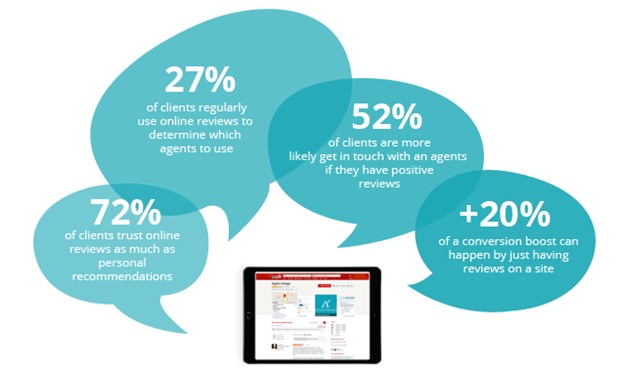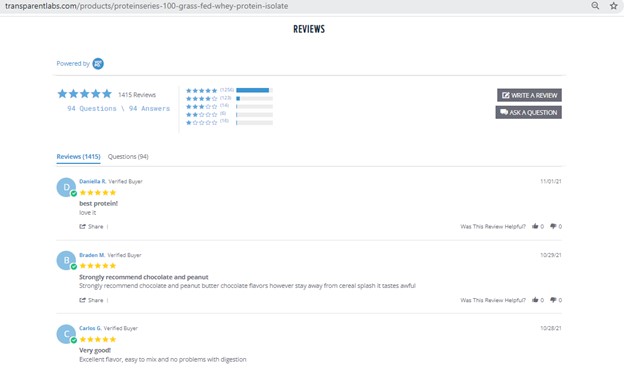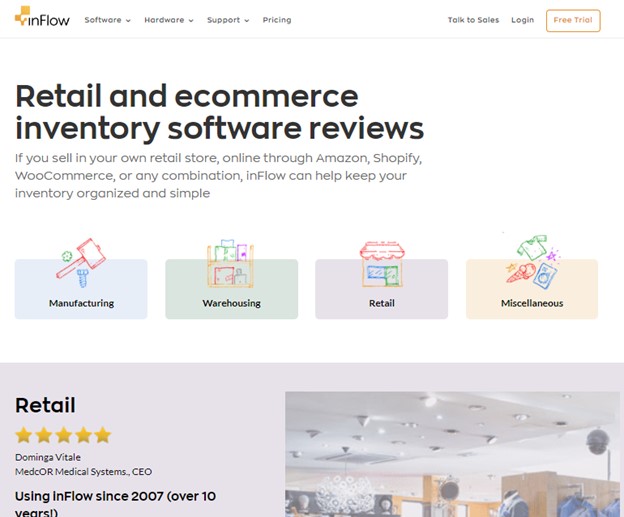Contents
DIY real estate SEO is a marketing effort to increase the exposure of your real estate company through search engines. And in the competitive world of real estate, every hopeful company that wants to scale its business must learn how to do it.
Although the process might be challenging and long, the reward is worth it. Once your business claims its spot on the first page of a search engine, almost every business metric improves.
In this article, we’ll be talking about the best practices to improve your SEO and some tips on how to raise your website’s ranking.
So if you want to improve your real estate business’s SEO, then let’s get right to the article.
What Is Real Estate SEO?

The optimization done is to make Google see that your business is a trusted and legitimate source of real estate information.
Most real estate businesses think that creating a website will magically improve their exposure. They believe that creating one is enough to increase their website traffic, leads and improve conversion.
Although those things can be achieved, they can’t be done through only website creation. But by making efforts to improve a company’s SEO, the chances of achieving those metrics become higher.
SEO in real estate can:
Rank your website on Google – This allows your business to be seen first over your competitors. The number of Google users who search for real estate in your area can range in hundreds of thousands to millions. Being seen by that number of people can significantly benefit your business.
Make your business credible and legitimate – People believe and trust Google. If they see a website on the first page, they know it’s legitimate and a good source of information. That’s a position that you want your real estate business to achieve.
Improve inquiry and sales – If you’re able to do SEO correctly, not only will it increase your exposure and credibility, but the number of inquiries will also improve as well. And as you have more leads to talk to, it will ultimately increase your sales.
Now that you’ve understood how important SEO plays in real estate, it’s time to know how to apply it to your business.
How To Do DIY Real Estate SEO
In this day and age, you can almost do everything yourself for your business. It’s a cheaper route to take than hiring an agency to do SEO for you. To help you in this journey, here are 10 ways for you to do it.
1. Do some competitor research

Look at their website, content, social media, the keywords they use, and the backlinks on those content.
Take note of the questions as you do your research – are they active on social media? Do they utilize quiz makers to know what their market wants? Are they heavily focused on video content or written form?
Some businesses never got their SEO correctly because they never take their research seriously. To them, checking on their competitors hurt their ego. They failed to realize that they’re falling behind because their competitors are doing something right that they don’t know about.
With the information you’ve gathered, you’ll have an idea of what Google wants. You can tailor some of your strategies to this or improve those ideas and create better ones.
2. Conduct a technical audit

Finding those reasons and eliminating them in your whole process is one of the earliest things you can do to improve your SEO.
To help with running your technical audit, here are some of the things to look at:
Check your web pages – Firstly, you need to check if every web page of yours is up and running. Google will never rank a web page that’s not working.
Observe the links and keywords you’ve used – Make sure these things are relevant to your content. Google mentioned that they use software known as web crawlers. These web crawlers search public web pages, follow the links, and observe the keywords used.
Study your analytics/trackers – The data you get from your analytics software will give you objective information on what’s working for your business. You can duplicate the strategies you’ve applied on the high-engagement content while taking notes of what went wrong.
Test your site speed – Google has indicated the site speed is one of the signals used by their algorithm to rank pages. So if you’re trying to reach that first page, make sure to check on your site speed on Googe PageSpeed Insights.
Check your mobile-friendliness – Not every Google user performs a search on a desktop. A report from Hitwise mentioned that near 60% of all online searches are done through mobile devices. If your website and web pages aren’t mobile-friendly, then you’re missing out on a ton of opportunities to be seen.
3. Focus on keywords

A tip I can give is going beyond the typical keyword searches. Go deeper into your keyword research and go for those low-hanging fruit keywords.
Low-hanging fruit keywords are keywords that don’t have many competitions using them but still have a significant number of monthly searches.
Here are some keyword ideas that you can improve or work on:
- “Homes for sale in *your city*”
- “Houses for sale in *your city*”
- Properties for sale in *your city*”
- “Cheap homes in *your city*”
- “Cheap apartments in *your city*”
- “*your city* home rentals”
- “Realtors in *your city*”
- “Real estate agents in *your city*”
Notice how the keywords above always specify the city you’re in. This is important so you can focus on keyword searches in your area. There’s no use going for a general keyword when your business only caters to your local place.
But if your business serves a nation-wide market and you’re aiming to be a great source of information for all things real estate, here are some keywords you can begin with:
- How to increase the value of your home
- How to find a great realtor
- Home selling tips
- How to market your home
- How to stage your home
- Why do you need a realtor
- Best improvements for home valuation
- Homebuyer guide
- Top tips to get the best offer
4. Zero in on quality content
Any great brand designer or business owner knows how important quality content is when it comes to SEO.
When you have a real estate website and publish content that helps your market, one of your main goals should be a central hub for real estate. You want to be the go-to website for your market. Your aim should be to create content that your market loves.
Having this kind of goal makes you and your team strive to create quality content. It puts everyone in your business on the mindset of helping people through the content you produce.
You can create blogs that answer the problems of your market. Like how they can sell their listings faster or tips to grow their real estate network.
You can curate content that can improve your customer’s current real estate situation. Teach them what preset for Instagram they should use to make their homes more aesthetically pleasing. Or you can talk to them about landing page tips to get their conversion rate up.
By taking the time to create quality content, you’re also improving leads since more and more people want to hear from you. If you’re good at dishing out helpful content, it can even help boost your conversion rate.
It is also through quality content wherein you can showcase your skills and knowledge in your industry. Once you leverage that knowledge in helping your market, those people will increase their confidence in you and see you as a great source of information.
5. NAP should be consistent
NAP stands for Name, Address, and Phone number. It is an important aspect of your SEO that should be consistent, so Google can always refer to your business when a user searches for something related to it.
If you contact any top marketing agency, this will be one of the things they’ll be looking for in your business. They know how essential NAP is when it comes to the digital world.
Remember that search engines help users by providing websites that are trustworthy and relatively near to the user. And one way for Google to know that you are near a user is through your NAP.
With this information, having your NAP be consistent across all websites will help in your real estate’s SEO.
To help you with setting up your NAP, here are some tips you can follow:
Tip #1: Avoid abbreviations
Although abbreviations are tempting to use, you want to ensure that Google’s algorithm knows where you are. Don’t use “st” for street or “NY” for New York. Spell that word out.
Tip #2: Be consistent
As we’ve mentioned earlier, be consistent with your NAP. Make sure your NAP details are the same across your website, web pages, social media, and listings.
Tip #3: Keep it updated
When you change your address or get a new phone number, make sure to update your NAP. Most small real estate companies tend to forget this since it’s just a small aspect of their business.
6. Submit your site to local directories
A time-tested local SEO real estate tactic is submitting your website to local real estate directories. This is because business listings always show up on the first page of Google local search results.
What you can do is to submit your website or NAP to big real estate directories like Zillow, Trulia, or Redfin.
Being part of those large marketplaces where thousands of people scroll through the platform will allow your business or listings to be seen more often.
Even real estate agents can capitalize on this to get their name out there. Being part of a real estate agent directory allows you to customize your agent profile however you want it. It is through that profile where you can promote your services and listings.
Those directories make it easy to connect with your market, establish new relationships, and build a new network.
7. Use the power of social media

You’d be surprised how many real estate businesses don’t leverage social media that much. It’s a powerful marketing tool that can greatly help with real estate SEO.
Everyone uses social media regardless of where you are in the world. People use it to be entertained, to be informed, or to connect to people. And as a real estate business, you can address those needs.
You can entertain your market by showing them engaging content. Make them curious, make them laugh, or make them emotional.
You can keep them informed about all things real estate through the content that you produce. Teach them a thing or two on flipping real estate, guide them on how they can successfully sell their new home, educate them on how to achieve passive income with real estate.
Connect them to the professionals in your industry. Use social media to guide them to legitimate people that can help with their real estate journey or problems.
Other ways of providing value in your industry through social media would be by participating in forums. Be active on those platforms and answer questions. This will increase your credibility and confidence in your business.
8. Encourage reviews and showcase them

Others showcase it on their service or product page. An example of this would be Transparent Labs. On their product pages, whether it may be for protein powder, creatine, and others, you can see a ton of reviews and answered questions regarding their products.


Showcasing reviews isn’t showing off, but instead, it acts as social proof that your services and products are legitimate.
9. Make your processes smooth and easy
If businesses use marketing automation to simplify things, you can also apply the same thing to your processes.
If doing business with you is easy and has little to no hassle, that can be a USP in itself. It can be a sole determinant for people to choose you over your competitors.
A smooth and easy process has allowed businesses to lower their shopping cart abandonment emails, improve conversion rates, and increase their repeat purchases.
So if you sell digital products or services to your market, make sure checking out on your website is simple. Wherein they can buy a product or service in just two clicks without filling up long forms.
Putting in time for researching user experience will have a positive ripple effect. Customers who have experienced excellent service and easy processes will tend to share that experience with others.
10. Think outside the norm
Thinking outside the norm is doing something different from what others are doing. This works perfectly well for small to medium-sized real estate businesses since they have more potential to grow than the more established ones.
Most large companies don’t dabble in something new since they don’t want to deal with the risk. Plus, their name is enough to get them exposure in the industry.
But for smaller companies, where the competition is very high to get that exposure both locally and globally, they can separate themselves from the pack by being different.
Being different in marketing, providing information, educating your market are great ways to stand out.
For example, you can create a video series showing how to improve a house to get a better valuation. Or you can hold productive online meetings or events where you gather real estate personalities to share their wisdom with your market.
The opportunity of doing things differently is endless. In a crowded industry like real estate, it’s a good way for your business to stand out.
Conclusion
There are no standard steps for a DIY real estate SEO. There are only good practices and ideas that you can apply to this whole process.
The things mentioned above are time-tested practices to improve your real estate SEO. Those are the strategies used by growing companies from other industries as well.
By doing all the things above, especially number 10, you are bound to increase your metrics. A massive improvement in traffic, leads, and conversion will come your way.
Just remember that the whole process of a DIY real estate SEO is a journey. Improvements can’t be achieved overnight. It’s a long process where there are trials and errors. But fortunately, the outcome of every effort you’ve put into this will be worth it.

Written by : Burkhard Berger
Burkhard Berger is the founder of Novum™. You can follow him on his journey from 0 to 100,000 monthly visitors on <a href="https://www.novumhq.com/" target="_blank">novumhq.com</a>. His articles include some of the best growth hacking strategies and digital scaling tactics that he has learned from his own successes and failures.

